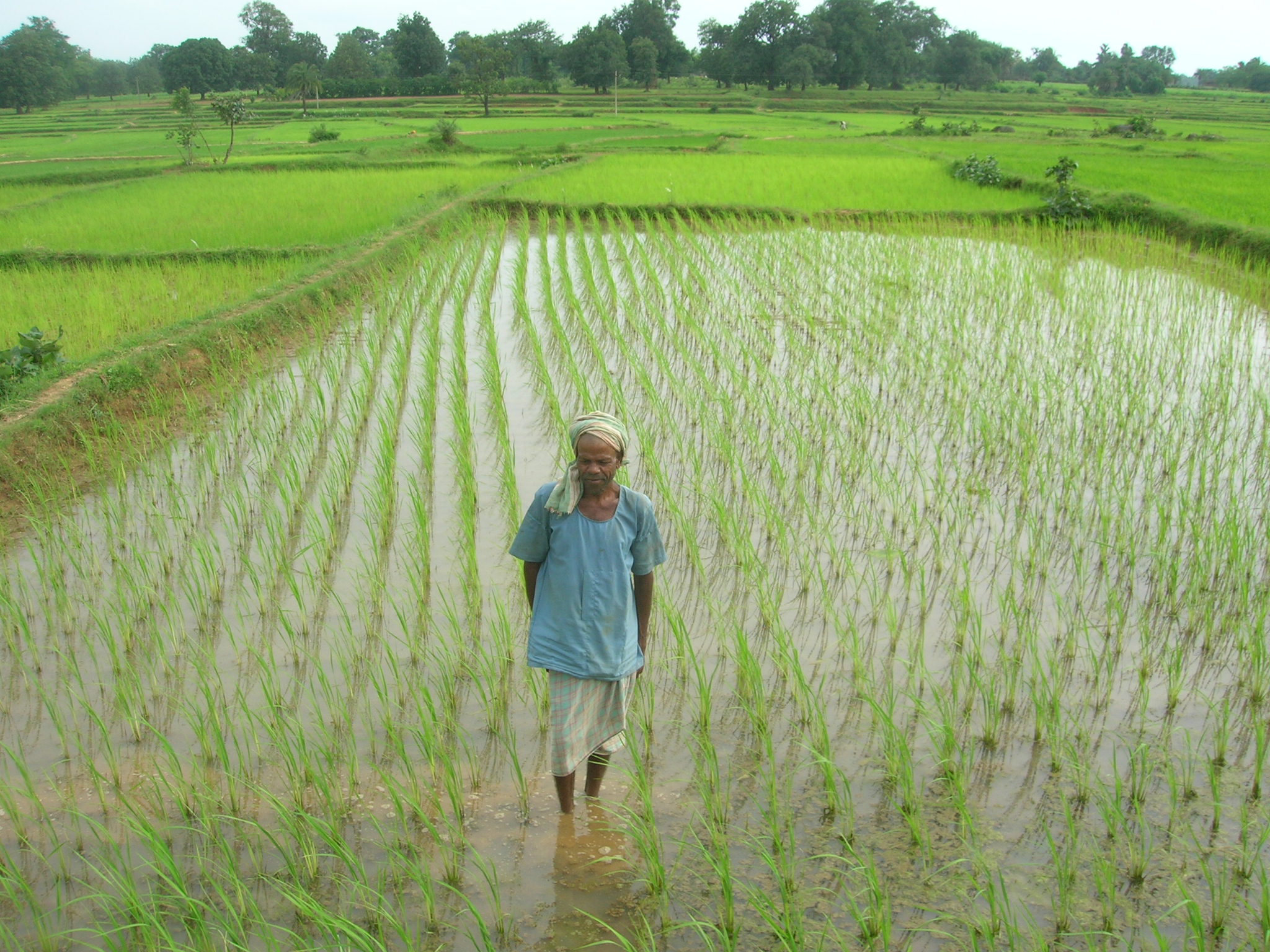हमर कतका सुन्दर गाँव
जइसे लछिमी जी के पाँव …..
अंगन मा तुलसी चौरा
कोठा मा बइला गरुवा
लखठा मा कोला बारी…..
जेकर लकठा मा हवे मदरसा
जहां नित कुटे नित खाए।
-Pyaarelal Gupt
(My village so beautiful, like the feet of goddess Lakshmi. There’s a Tulsi in the courtyard and a buffalo in the porch, there’s also a garden full of greens. There’s also a place of learning near, where daily you eat and you beat.)
This poem is called Hamar Katka Sunder Gaav (My so beautiful village), written by one of the progressive poets of Chhattisgarhi Literature. This poem has beautifully captured the underdog literature of Chhattisgarh. This has been a predominantly agrarian state with small holdings farmer everywhere. This society was never a market-based society. It was sustainable, it had no waste and the soil flourished like gold. This poem is also capturing this village India, where home is in the soil. The place you learn is where you have to beat paddy to get rice at the same time, you get beaten to eat well the food of knowledge and learning. In Chhattisgarhi, the word for wealth is Dhan and the word for paddy is Dhaan. These words are not coincidentally similar rather people here value paddy as much as one values gold. Rice is called the gold of soil and this emotion cannot be justly expressed in English. Another masterpiece by a poet called Lakshman Masturiya goes:
मय छत्तीसगढ़िया अंव
मय छत्तीसगढ़िया अंव ग…..
सोन उगाथौं माटी खाथौं
मान ले देके हांसी पांथौं
खेती खार संग मोर मितानी
घाम-मयारू हितवा पानी……….
(I am a Chhattisgarhiya. I shoot gold, eat soil, I struggle to catch a laugh, field soil my company, sunlight my kindred, water by my side… )
This poem is self-explanatory but what is so beautiful and catching is the fact that the poet prides upon eating soil. He prides that water, soil, air are his friends and accomplice. It seems that he is complaining in the third line where he says that he hardly catches up on laughter but this is a sacrifice he made consciously to be friends with sunlight and water. Life in Chhattisgarh starts with agriculture and ends with the gold called harvested paddy. But one shouldn’t be in darkness and understand that because it is an agrarian society, it did not have the evils of caste, class, gender discrimination. Like Ambedkar had always questioned the village republic, Masturiya is not also not considering village as a utopia rather he writes another poem called Mor Sang Chalaw Re (Walk along with me):
मोर संग चलव रे ,मोर संग चलव जी
वो गिरे थके हपटे मन अउ परे डरे मनखे मन
मोर संग चलव रे ,मोर संग चलव ग…….
नवा जोत लव नवा गांव बर, रस्ता नवा गढव रे
मैं लहरी अंव मोर लहर मं फरव फुलव हारियावव
महानदी मैं अरपा-पैरी तन मन धो फरियालव
कहां जाहू बड़ दूर हे गंगा पापी इहे तरव रे………
(Walk along with me, walk along with me, those fallen, tired, scared souls of the heart, walk along with me, walk along with me! To new life,new village and to build new tracks, I am a free wave, you too join my wave and cleanse yourself. I am like Mahanadi and her sisters, wash away your body, your heart. Too far flows Ganga, I pour all my sins here.)
This poem is for a camaraderie. It calls to all those deprived sections of the society, who needs help in their upliftment. It calls them and asks them to join as if the author is not a person but a wave, an ideology. His ideology is to free one and all from the evils of the society.This will create a new village, a new path, a path free of sins. He compares this with the ritual of washing away sins in Ganga among Hindus. He says Ganga is too far, so immerse yourself in my Mahanadi!
Chhattisgarhi literature has never been read and circulated extensively. It has never come out of the state itself. In this amateur attempt of bringing more poems to the world, I have tried to show how literature has been diverse and some diversities are more equal than others.
In this attempt, I have used constant help from Sanjeev Tiwari Sir, a lone man in digitizing Chattisgarhi culture through the website http://www.gurturgoth.com .I express my gratitude toward this support and help.
About the Author: Kalpita Wadher is a Masters’ student of Social Science but her undergrad in literature makes her combine society and people with words of solace.

